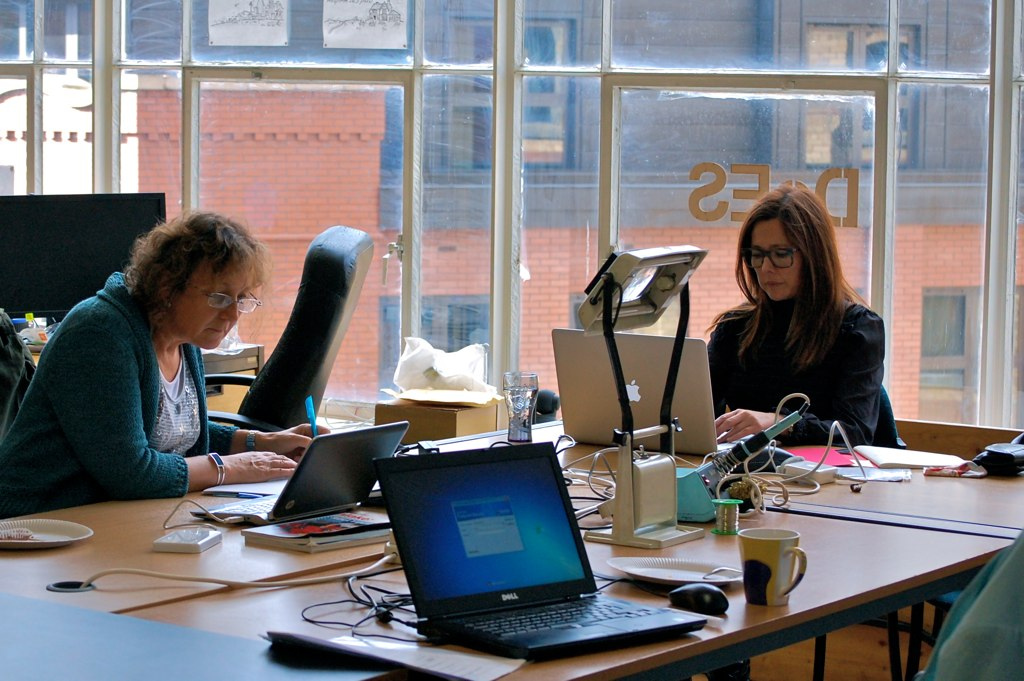
We're currently working through "Author Review", where a baffling number of editors (Project Editor, Techical Editor, Copy Editor) apply their incisive critical faculties to pointing out everything from spelling mistakes and factual errors to problems with content, structure, and tone.
Here's part of a paragraph from one chapter, and the comment from our TE Daniel:
While having an Internet-accessible computer in a fixed location was useful to those who needed to use it for work or studies, it would often be monopolized disproportionately by male and younger members of the family for general browsing or gaming. Now that the whole family can go online in the comfort of the living room sofa or their own room, they tend to do so in greater numbers and with ever greater confidence.Is that demonstrably true? It's a sweeping generalisation that fits the stereotypes, but the sociologist in me wants a bit of data behind it.
Yes, our editors keep insisting that we back statements up, rather than just making them up, annoying isn't it?
I didn't feel it was a stereotype though, rather an actual societal change. Once, computer users were overwhelmingly male, now everybody uses a computer.
Many in my generation of late 30-somethings grew up with a computer in the house, typically in our dad's office. My dad had an Amstrad PCW, while me and my brother did eventually get our own computer, a Spectrum 48K, which was later upgraded to an Acorn A3000. My mum used to joke that her involvement with the computer was dusting it.
When I went to University, I finally used the Internet for the first time. Even on graduation in 1998 I went online mostly at work, and didn't get a home ISP till a few years later, on a dial-up connection.
But it was when laptops, always-on broadband, and wireless routers became pervasive in homes that we started to notice our parents going online, mums as well as dads, with their own computers. Why are these the factors?
Of course any of our mums could have used the computer for something important any time they wanted. All they would have had to do is ask their husband to stop using "his" computer for a defined time, go into his office, switch on his PC, and when that eventually booted up, dial up the connection. While the computer was connected, the phone line would be out of action for the whole family. With limited chance to use a computer or get online, the experience could be stressful, with unfamiliar situations to deal with, like confusing popups, flakey connections, and crashing browsers.
But with your own laptop, and and Internet connection that's always on, everywhere in the house, these are no longer issues: there is no negotiation or permission required to go online. All you do is open the lid of your laptop, and you're instantly on (although my mum complains bitterly about the seconds it takes her Macbook to establish the connection). Both my parents use their laptops daily, regularly, to check email, call family and friends on Skype, catch up with TV on iPlayer or TV5 Monde, listen to Finnish radio, or to help solve the cryptic crossword puzzle in the papers.
In the intervening years, using a computer has also become simpler, but there are still unfamiliar situations for both of them. But once you have access to your own computer all the time, you have enough time and space to learn to deal with those situations as they arise.
It's no coincidence that the things that enabled this societal change (computer processors and battery technology become vastly better and cheaper, and pervasive Internet connection) are also the core things that make the Internet of Things possible. And this reminds us that the Internet of Things for Humans is about making the Internet useful for everyone, and not just early adopters of technology.
Sadly, the plural of "anecdote" isn't "data". I'd love to know if the scenario I presented above matches our readers' experience (please reply to this post, or tweet @aBookOfThings with your comments!) but actually I'm struggling to find any real analysis on the topic.
Googling mums online finds me parenting advice, and I'm almost too frightened
to search for housewives online. Phrases like wifi changed the world
bring up articles about how this will revolutionise business. Searches about
laptops societal change point to the wonderful One Laptop Per Child
which certainly seems to confirm that there are far-reaching consequences to
be found.
If you have any links to commentary or research on this topic, please let us know!